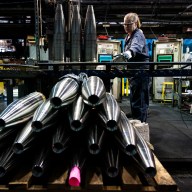Anyone that has picked up a newspaper or seen a newscast as of late has been subject to a great deal of negativity surrounding the overall North American economy. Although it is clear that Canada has faired better than the United States, we still seem to be following our number one trading partner down a path to slower growth.
While we won’t know for months if the U.S. has actually fallen into a recession, (two quarters of contraction in the economy) the unemployment and housing numbers of the past two weeks have confirmed enough. The U.S. is slowing down and they are taking the rest of the world with them.
However even in the face of slowing growth and a major financial crisis, an investor can still make an argument for investing! Markets tend to recover three to six months prior to an economic recovery and thus we are already thinking about which stocks work best in an eventual recovery. If investors feel that the worst is behind them, they will start putting their money to work once again. North American markets have already bounced back off their lows due to the fact that the Federal Reserve in the U.S has stabilized the banking sector by providing them access to capital for them to conduct regular business. With a floor established, it is now time to put your financial savings to work!
Investment opportunities can be broken down into short and long term. However to properly navigate your portfolio through these difficult times an investor must stay diversified regardless of whether you are investing for short or long term. It is also important to own stocks that are best in class. This means that they are leaders in their particular industry. Four areas of investment that I like currently are technology, healthcare, railways and selective financial companies. Technology sector valuations have dropped the most this year due to the fact that consumer spending is slowing and corporations are not spending enough to compensate for the consumer slow down. I like this sector because an investor is able to pick up some larger companies at very low prices. The healthcare sector in general tends to be a defensive sector. I am not bullish on the large pharmaceutical companies due to their patent expiries but I do prefer the medical equipment makers, the pharmacies and the generic drug makers to take advantage of an aging population. The large railways are showing great promise due to the high price of gas at the pumps. A large part of trucking business is spilling over to the railways due a spike in transportation costs. This should continue as oil prices remain high. A lot of analysts are staying away from Canadian and U.S. financials but I like this sector. Short term it will be quite volatile as the banks continue to rectify their problems but long term I think having a slight bias to the financial sector should fair investors well.
My recommendation is to stick with large companies versus small. These companies should rebound quicker.
With commodities remaining at high levels, it becomes quite difficult to own companies in this sector. However an investor today must have some oil and metals exposure not only for growth but as a hedge against the possibility of more difficult times in the future and the potential of further declines in the U.S. dollar.
Depending on the size of your portfolio, you may want to add a retail company to the mix. A company that does business inside and outside of North America would be beneficial. This would give an investor some growth when the market rebounds and spending picks back up.
Allan Small is an Investment Advisor with Dundee Securities Corporation, a DundeeWealth Inc. Company. He can be reached for more information on navigating your portfolio during difficult times at asmall@dundeesecurities.com. This is not an official publication of Dundee Securities and the author is not a Dundee Securities analyst. The views expressed are those of the author alone, and are not necessarily those of Dundee Securities or Metro Canada.
















